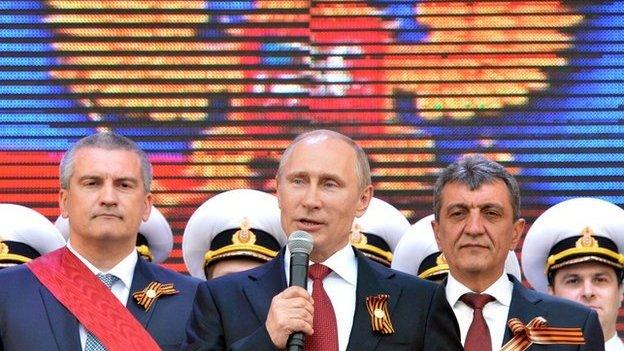EU set to fight back in Russia information war
- Published
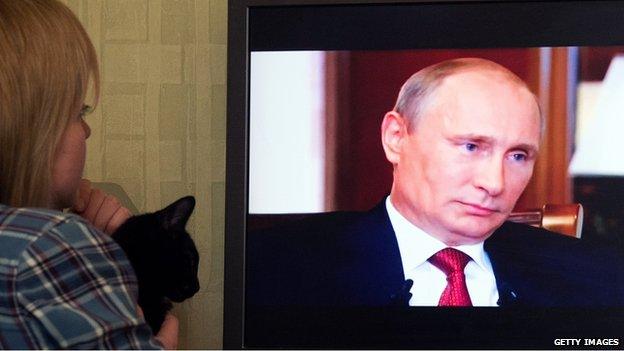
Russian TV ran an extensive three-hour documentary on the annexation of Crimea on Sunday night
When EU leaders meet for a summit in Brussels later this week they will have to confront serious divisions on whether and when to extend sanctions, imposed on key sectors of the Russian economy in response to the Kremlin's actions in Crimea and eastern Ukraine.
But amidst talk of unresolved splits on sanctions, there does seem to be broad agreement on a separate but related issue: the need to challenge what a draft version of the summit's conclusions calls "Russia's ongoing disinformation campaigns".
The EU's foreign policy chief, Federica Mogherini, will be given the task of preparing an action plan - Brussels loves those - on strategic communication in support of media freedom. It should be ready by June.
The EU and its member states have been concerned for some time about Russian propaganda, and about the fact that the counter-argument coming from the EU often seems to be poorly focused and unconvincing.
There is a variety of proposals about how to respond better.
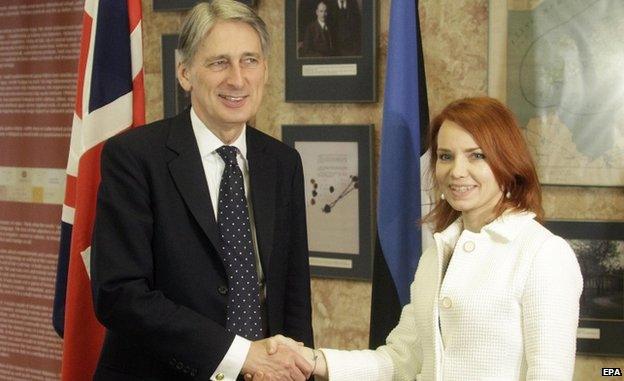
UK Foreign Secretary Phillip Hammond and Estonia's Keit Pentus-Rosimannus have warned of increased Russian propaganda
Latvia has floated the idea of an EU-funded Russian-language TV station. A panel of experts looking into that possibility is due to report next month.
But the general mood is that the best way to respond to Russian pressure is on a co-ordinated country-by-country basis.
"What we can do from Brussels is to help member states," said a senior EU official. "But the responsibility to do this will remain at the national level."
And efforts are already under way in the Baltics to provide better programming for channels aimed at Russian-speaking audiences within the EU.
"The key," said one official, "is to have good content and to share it well."

Russia's nationalist media message
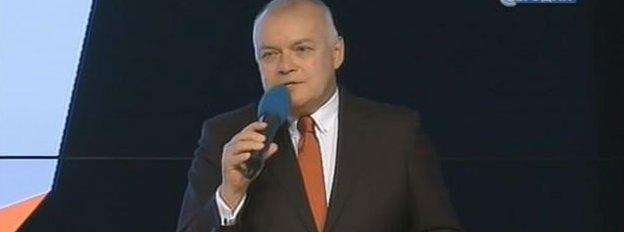
Russia's anti-Western news anchor Dmitry Kiselev recently launched Sputnik, a news agency with a big international network

But there are also broader issues at stake.
A paper produced earlier this year by four countries - Denmark, Estonia, Lithuania and the UK - notes that Russia is "rapidly increasing its disinformation and propaganda campaign".
The aim, according to the paper, is "to discredit EU narratives, erode support for legitimate governments… and undermine the concept of free independent, pluralistic media".
"Where there is misinformation, particularly about the EU's policies and programmes, the EU needs to have something more coherent to say about it," said an EU diplomat.
"We also need to explain what's on the table for our eastern partners in a less technocratic way. We need to be more sophisticated about how we get information to the public in a way the public understand."
The paper produced by the four countries suggests four broad areas on which any response should focus:
The EU should raise awareness of the dangers of disinformation and the importance of a proper response. This could include further cooperation with Nato on strategic communications
The EU should tell the truth and deconstruct propaganda pro-actively. Clear objectives should be set for EU communications in its eastern neighbourhood
Credible alternatives should be provided to audiences who rely on Russia's state-controlled media. The capacity of existing credible Russian media outlets should be strengthened
Greater attention should be paid to the violation of broadcasting rules. EU media regulators need to cooperate more effectively
It is, in other words, no quick fix. Instead, it is the blueprint for a long-term strategy.
Russia will always have some success in trying to sow political divisions among the EU's 28 member states. That will remain fertile ground, because there will always be a variety of views.
But the debate about propaganda and disinformation, and the need to respond, adds to the feeling that the current dispute with Russia will not be over quickly, and that the EU is preparing for the long haul.
- Published15 January 2015
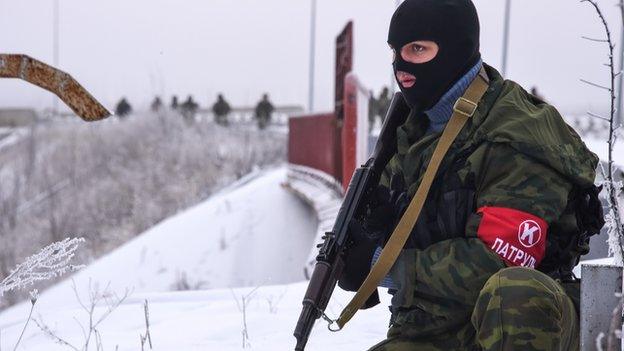
- Published16 November 2014
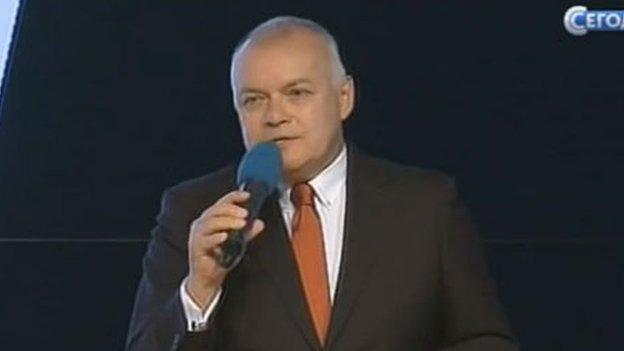
- Published5 March 2015

- Published6 June 2014
